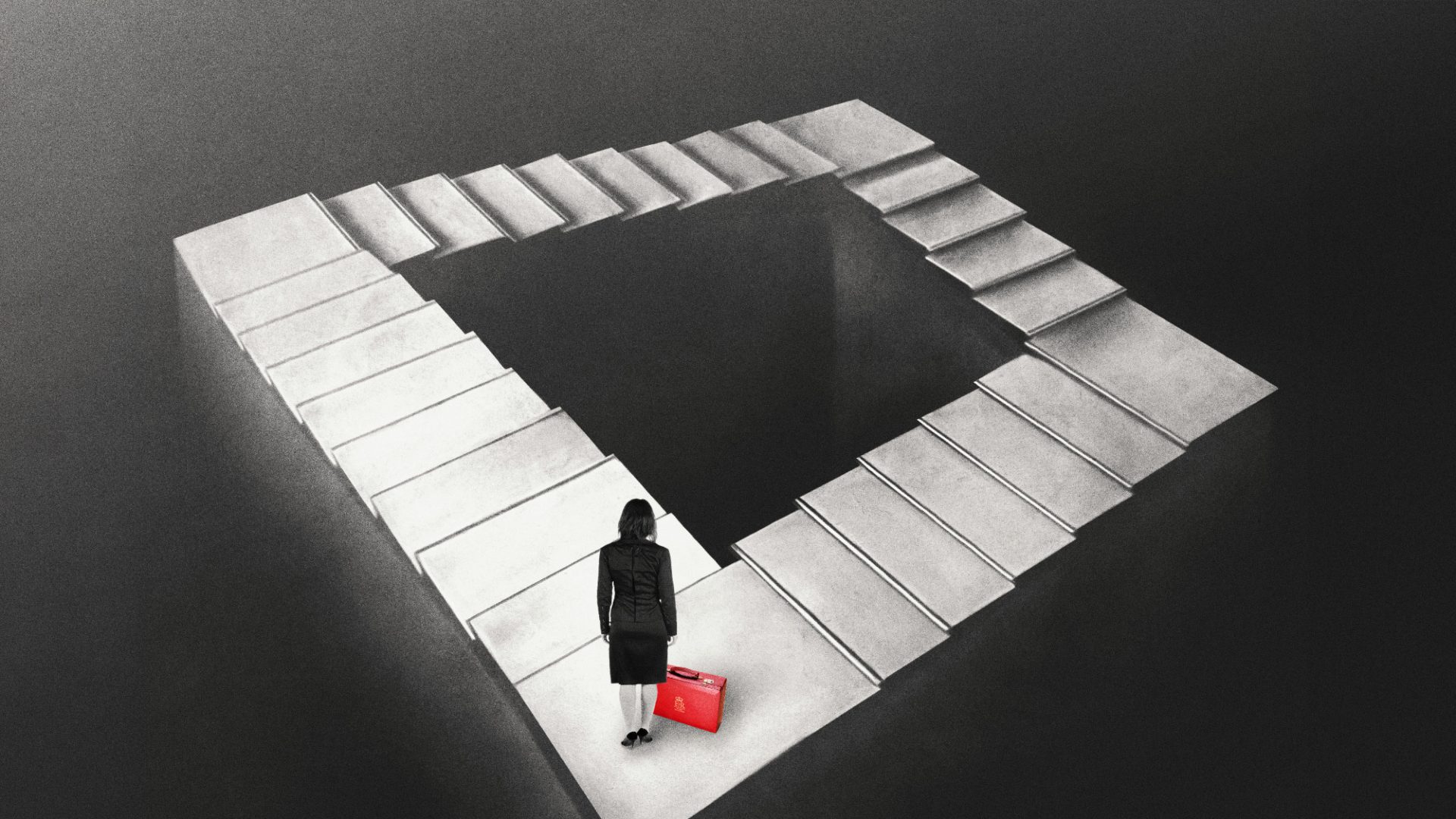The chancellor, Rachel Reeves, has received what in rugby is known as “a hospital pass”. That’s when someone passes you the ball just as the entire opposition front row hits you like an express train. Reeves is faced with an economy that is in the doldrums, productivity and growth are dire, the books don’t balance, borrowing is already high, and the list of things that will fall apart without more spending is almost endless.
To get out of this hole is going to need more borrowing, higher taxes, and a whole raft of reforms, many of which won’t bear fruit for years. But if she wants the economy to turn around before the next election, she is going to have to start now.
In the short term Reeves is going to have to raise money from higher taxes. Since Labour only got into power by promising not to increase VAT, national insurance contributions and income tax, the three largest revenue-raising taxes by far, she has made a rod for her own back.
But the government is now signalling that the earlier promise not to increase national insurance only applied to individuals, not to employers, who also pay in. Increasing employers’ national insurance contributions by just 1p in the pound to 14.8 pence would bring in an extra £8.5bn a year on top of the £60bn it already raises, or about a third of the black hole that the Treasury now says it has found in the government’s finances.
There are other tax rises that will also be almost inevitable: higher tobacco and alcohol taxes serve a social good and bring in money. Tobacco tax brings in £8.8bn a year, alcohol brings in £12bn. They will rise.
But the elephant in the room is the fuel duty stabiliser, which is supposed to increase fuel duty when oil prices are low. It’s meant to be a green policy to reduce fuel consumption and incentivise the use of electric vehicles.
Unfortunately, it is very unpopular and successive chancellors have taken the coward’s way out. Fuel duty has not been increased in line with inflation for 10 years, and in some cases it has even been cut. According to the Office for Budget Responsibility, since 2011 the decision not to increase fuel duty has cost the government £90bn. We can expect the motorist to take a hit in the budget.
There are other taxes that could rise and loopholes that could be closed, but they won’t raise very much. Which brings us to borrowing, the only other source of government revenue.
The government’s total debt is 100% of GDP, it has been much higher in the past, but only in the aftermath of world wars. A debt pile of 100% is affordable, but with slow growth and an ageing population, borrowing is going to get worse if we don’t balance the books and stop borrowing to fund day-to-day spending rather than investment. Lower inflation helps, as it reduces the cost of borrowing for the government, which should save £10bn a year. Even so, the government spends £89bn a year on interest payments, or 7.3% of its total spending.
But if Reeves wants to borrow more, even in the short term, she will have to change the rules and keep the financial markets on side.
The Treasury could start counting improvements in infrastructure created by government investment as net gains on the national balance sheet. That would allow the nation to borrow more – the nation would appear richer and debt would therefore be a smaller percentage of the national wealth. The government could also change the way it counts the losses made on gilts held by the Bank of England, which could free up a further £15bn. All in all, changing the rules might let the chancellor borrow another £50bn to invest – but she is unlikely to borrow that much for fear of spooking the markets. There is no point in having plenty of headroom if no one trusts you enough to lend you money.
But something will have to be done to increase investment. There is little prospect of increasing growth without it. The current fiscal plan left by Jeremy Hunt calls for investment to fall dramatically in coming years – yes, we were planning to improve the country’s crumbling schools, roads and hospitals by investing less. The UK is already the worst investor not only in the G7, but also it is fourth from the bottom of 30 OECD countries. This is what Rachel Reeves really has to change.
But there is even more that she should and could do. For a start we know that Brexit has cost us 4% of GDP if not more. Wes Streeting might think that the Brexit debate is over, but the chancellor would be mad not to address this issue. Just cutting red tape at the border with the EU would help, and rejoining the single market would be a real boost – and she knows it. Only last week at an investment summit in London, David Ricks, the CEO of the pharmaceutical giant Eli Lilly, told the BBC: “The difference in the UK, on your own now, separate from Europe, (is) it’s a relatively small market.” Which just about says it all.
Secondly, the tax system is massively biased in favour of the wealthy and that needs to change. The UK has high levels of taxation on income and spending, but much lower taxation rates on capital. This means the rich stay rich just by sitting on their money and that house price inflation is seen as a good thing. This makes it far better to put your money in tax-free or lowly taxed areas like property, rather than riskier, more rewarding ventures.
The UK needs to change the tax on capital gains so that it is closer to the tax on income, is fairer, encourages entrepreneurs and brings in more money.
It is also necessary to revamp the tax system in the UK. There are an amazing 1,180 tax reliefs – we don’t even know if many of them work, but we know who exploits them. There is a whole industry that does nothing else. There are also numerous “cliff edges” that distort the economy and hold it back – the £85,000 threshold for VAT is one. It is amazing how many companies stay just under the threshold and pay no VAT.
The removal of personal tax allowances over £100,000 is another. Under the current arrangements, a family with full-time childcare for two children in London would be better off if they earned under £100,000pa than if they brought in almost £150,000.
Then there are family-owned and -run firms, often portrayed as the backbone of the British economy, when really they act more like a brake. They are inefficient, too small, and unproductive. If the tax system is to encourage anything, it should be to sell and merge SMEs, especially family SMEs, to improve growth.
We also need to rebalance property taxation. Tax should increase on much more expensive properties in London and the south-east of England, and closing some or all of the very generous inheritance tax loopholes would make sense, be fair and hit very few people. Both are very unpopular, but all of these changes now would be four years old by the time of the next election.
Rachel Reeves has a difficult balancing act to pull off. The tax burden may be high but it needs to be higher. Luckily by international standards UK tax levels are still low, and even the planned increases in taxation inherited from Jeremy Hunt would leave us well short of the European average. And, as we have discovered to our cost, you get what you pay for. Borrowing is high but she needs to borrow more and she should be able to find the room to do so.
Reeves has to, if we are to grow the economy and allow the time for further reforms to work. The government is just starting out on a broad range of changes that it hopes will be transformational. It plans to increase house building, improve the terrible planning system, train far more workers, improve broadband, improve national health so more people can work, improve the transport system, and so on. All of these changes, if done correctly, should improve long-term growth, but any positive effects will take years to manifest themselves.
Rachel Reeves is going to be very unpopular whatever she does – but being unpopular is not necessarily a sign that the chancellor is wrong. She must deliver one of those once-in-a-generation budgets that changes the way we see and think about economic policy. Nothing else will be good enough.




